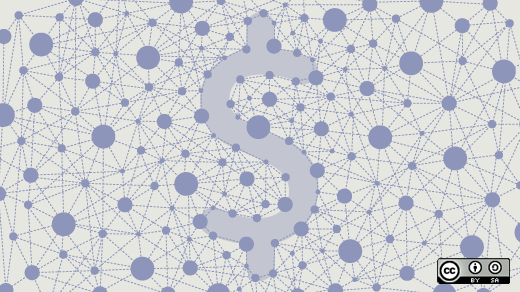Tell me, what's the difference between open source and commercial software? If you'd have asked me not long ago, I'd say that there was a world of difference between the two, and that they both sat at opposite ends of the software spectrum. "Isn't it bad," I thought, "to pay for software?"
No! The correct answer is that it's perfectly OK to pay for free software. Free and open source software at its heart is a philosophy: it is software that enables and empowers through the provision of its own internal code. This offers the public auditable standards, and an end consumer has the final say in choice, customization, and community.
While most open source projects give away their open source software, and a healthy and growing number of projects sell free software support, it's OK to sell both the software and support. Sometimes companies are able to sell software that they obtained for free, and the original authors won't see a penny. That's OK, provided that certain rules are followed.
The days of "you get what you pay for"
Sometimes people get stuck in old habits. This is a result of our memories from the early days of the internet: "free" software could be mixed almost interchangably with "pirated" and often "infected" software. Anything labelled "free" was something you learned to avoid, because you never knew when you might get burned.
These days, now that we're older and working, why not drop $400 for a MegaCorp email program that worked well when we pirated it in 1998? It's easy to not feel bad about buying proprietary software, because we get things in a box.
That's why people like "commercial"--by which they mean proprietary--software. It comes in a box. This is both literal and figurative. A single parental company controls the software, and they release the patches. They are the ones authorized to ensure things run smoothly.
You might say, "It's expensive, and we have to jump hoops for their requirements, but that's the price you pay. Oh yeah, some things don't work, but we hope they'll release a patch soon." This can be the experience you get dealing with an open source company as well: sometimes you're just not happy.
It's an over-simplification to say that closed source companies are bad at fixing bugs. Open source communities aren't always so nimble or creative or helpful when you come to them asking for improvements.
The different between paid proprietary and paid open source is the power to make decisions yourself. With active open source communities, you usually have pretty good channels to talk directly with original developers. Or you can change to your own developers. Or you learn the system and start to create for yourself. Or, if all else fails, your data is an open standard, so you can change your software.
Smoke and mirrors
That's the illusion of proprietary standards and support.
It's easy to think that at least if we buy something proprietary in a $400 dollar box, we're entitled to some free help. Usually though, we get nothing besides an online forum. Maybe some official answers with some dead links. Maybe an automated bug reporting form. We may also erroneously believe our paid proprietary software works with everything, including legacy software.
In IT industry work, the more often we forget open source standards, the stronger the case for a closed society becomes. Our purchasing dictates whether proprietary standards are develop behind closed doors. But OSS is being adopted across major businesses, governments, schools, and in people's homes--we can't afford to fund against these things.
We must choose to not only use free software, but also purchase it. The digital open source ecosystem still has much to offer that we are just now learning about. What if the open project that you find and fund becomes something that the entire world can use?





7 Comments